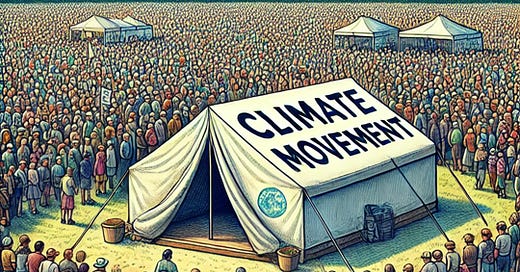This week I was invited by a colleague to try out the BSky app as an alternative to X/Twitter. They told me that it is far more welcoming for discussion about energy and climate. Sure, I thought, I’ll give it a try.
I actively posted there for a bit and learned that climate activists have created a Bsky climate “blocklist” that focuses on me and anyone who mentions me — Matt Yglesias of Slow Boring and Ted Nordhaus of The Breakthrough Institute are also on it. The blocklist prevents those on it from seeing the posts of those who join and creates a disincentive for anyone to mention those on the list, lest they get added to it. This is not a new strategy for some climate scientists and journalists.
People are free to create their social media echo chambers however they like, of course, but one detail is worth mentioning — One person promoting the block list is one of the lead scientists of the U.S. National Climate Assessment. That degree of intolerance among those selected to represent the climate science community is a problem for climate science and politics.
Tisha Schuller writes today that as climate activism becomes evermore “exclusive,” practical environmentalism is inevitable, and I agree with her:
Have we reached peak climate activism? I don’t think so. But we may have reached peak all-or-nothing climate activism, simply because the solution set entrenched activists will accept is too small, too slow, and too exclusive.
Following the election, Nick Kristof of the New York Times criticized Democrats for valuing ideological purity over the sort of pragmatic politics that wins elections. The climate movement might be the poster child for this dynamic:
I worry that Democrats prize purity, even at the price of a smaller tent. Many on the left were furious with the periodic roadblocks created by Senator Joe Manchin of West Virginia, but in retrospect, they should have been endlessly grateful that they had in their ranks a senator from Trump country.
Ironically enough, the efforts by some climate scientists and climate journalists to create an firewall between those few with acceptable pure views and everyone else might just help break the fever of climate reductionism found in leading media, science, and policy institutions — and thus help policy debates move on to energy realism and climate pragmatism. One can hope.
Lot’s of good stuff to get to today after the break: Weekend reading suggestions, recommended Substacks to follow, the very best of what crossed my desk this week, and how to get the most out of your paid THB subscription.
Let’s make the jump!
Substack pro tip: Customize your reading experience by having THB translated into your local language — Details here.




